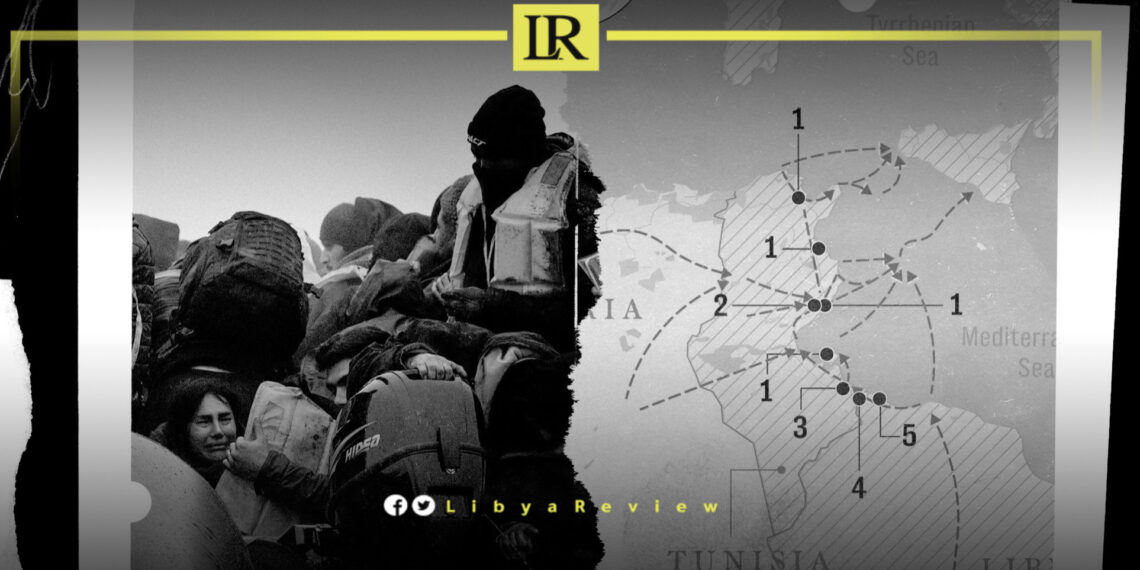A shocking new report has exposed the sale of migrants as slaves in Libya, with direct links to EU-backed border policies.
According to humanitarian organizations behind the investigation, migrants in Tunisia are being rounded up, detained, and sold to Libyan militias and traffickers for as little as £10 per person, fueling a brutal system of abuse and exploitation.
The report, titled “State Trafficking: Expulsion and Sale of Migrants from Tunisia to Libya,” details a coordinated system in which Tunisian security forces detain sub-Saharan African migrants before transferring them to Libyan armed groups. Women are sold for higher prices—up to £75—due to their exploitation as sex slaves. The study is based on extensive field research, including testimonies from survivors held in desert prisons and detention centers run by Libyan militias.
Libya has long been a key transit hub for migrants attempting to reach Europe. Still, years of political instability and lawlessness have turned the country into a battleground for human traffickers and warlords.
Since the fall of Muammar Gaddafi in 2011, Libya has been plagued by competing governments, powerful militias, and widespread criminal networks, many of which profit from detaining, torturing, and selling migrants.
The report alleges that the Libyan Border Guard and other armed factions are directly involved in the purchase and detention of migrants. Many are sent to Al-Assah prison, a notorious facility under Libyan militia control, where they are either held for ransom, forced into labor, or sold again to other criminal networks.
“They took us to the Libyan border. That’s where all the hatred in the world was unleashed. They beat us, they gave us electric shocks.”
“They sold us to the Libyans. We were treated like objects. One of my brothers was sold before my eyes, along with his wife and their one-year-old child.”
The report accuses the European Union and Italy of directly enabling these human rights violations through their funding of North African border security forces. The EU has spent millions of euros training and equipping Libyan and Tunisian border guards to stop migration to Europe, but these funds are allegedly being used to detain, traffic, and sell migrants instead.
Since 2017, Italy has allocated nearly €75 million (£62.8 million) to support Tunisia’s border forces, many of whom are named in the report for their involvement in migrant detention and forced deportations to Libya. These policies have reduced the number of boats reaching Europe by 59%, a figure celebrated by Italian Prime Minister Giorgia Meloni, but at the cost of horrific human suffering.
Spanish MEP Estrella Galán condemned the EU’s role, stating:
“It is an appalling act of irresponsibility that European funds are being used to facilitate the trafficking of human beings… reducing lives to mere commodities.”
Once inside Libya, migrants are imprisoned in squalid detention centers, where they face beatings, starvation, and forced labor. Many are held in desert prisons such as Al-Assah, which is controlled by the Libyan Border Guard—a unit benefiting from EU security funding.
Militias contact families of detained migrants, demanding ransom payments in exchange for their release. Those who cannot pay are subjected to forced labor, sexual violence, or further trafficking. Reports also indicate that migrants are exchanged for fuel and drugs, further embedding human trafficking into Libya’s vast illicit economy.
Libya remains deeply divided, with the Government of National Unity (GNU) in Tripoli controlling the west and rival authorities in Benghazi dominating the east. These divisions have created an environment of lawlessness, where militias operate with near-total impunity.


